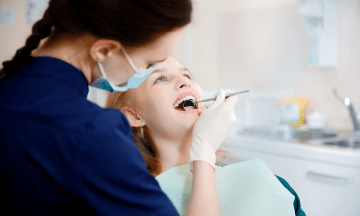

The branch of dentistry that focuses on dental treatment for the elderly is known as geriatric dentistry. The entire elderly population requires diagnosis, management, prevention and treatment of dental problems associated with age-related diseases. The mouth is considered to be a reflection of overall health. Poor dental health has long been thought to be a risk factor for overall health concerns in the aged population. However, due to their weak cognitive skills, physical dexterity, and medical conditions, elderly dental patients might be difficult to treat. According to certain dental studies, more than half of all dental patients over the age of 60 are on medication or have a medical condition. Older individuals are also more sensitive to medications used in dentistry, such as analgesics and local anaesthetics, and at the same time are more prone to develop dental disorders associated with ageing. Hence, it is extremely important for dental clinicians to develop treatment techniques tailored to the specific needs of elderly patients, as well as be proactive in the oral health of people who require long-term care facilities for dental issues. Oral Health Problems in Elderly In determining dental health, age is not the only important component. At times, certain physical disorders can make brushing and flossing teeth difficult. Drugs might also have an impact on your oral health, necessitating an adjustment in your dental care. But yes, seniors are at risk for a variety of oral health issues as they become older. Here are a few common oral health problems in the elderly - The oral mucosa conducts critical defensive activities that have a significant impact on the patient's overall health and well-being. Oral mucosal immunity alterations will most certainly develop as people become older. Older people are likely to be exposed to a variety of infections and chemicals that enter the oral cavity during daily activities if the protective barrier function of the oral mucosa deteriorates. As people become older, oral mucosa thins smooths and develops a satin-like edematous appearance with loss of elasticity. Further, wound healing and tissue regeneration also slow down. Denture stomatitis is one of the most common clinical findings in older adults who wear dentures. Denture stomatitis can be caused by ill-fitting dentures, poor denture hygiene, sleeping with dentures, and xerostomia. Other factors that cause denture stomatitis include chewing tobacco and drinking alcohol. Common lesions related to denture wear include traumatic ulcers and denture-induced mucosal hyperplasia. Changes in dentin (the bone-like substance that sits under the tooth enamel), and consumption of stain-causing foods and beverages for years are to be blamed. The outer enamel layer also weakens with age, allowing the deeper yellower dentin to peek through. This is a common condition for older persons, and it is aggravated by plaque, food left in teeth, tobacco use, ill-fitting bridges and dentures, poor diets, and certain disorders such as anaemia, cancer, and diabetes. Periodontitis risk also increases with age. Reduced salivary flow has been linked to the primary oral health concerns of old age, such as mouth dryness and dental cavities. One of the reasons is the consumption of medicines. Why is regular geriatric dental care important? There are a number of reasons why older people need specialized care from dentists who have extensive training and experience working with geriatric patients. 1. Drug interactions: Because elderly people are more prone to use many over-the-counter and prescription drugs, they are more susceptible to drug interactions, medication mistakes, and adverse drug reactions. Specialists in geriatric dentistry are aware of this and can take extra care to ensure the safety and well-being of their elderly patients. 2. Understanding the patient: Sensory, physical, and cognitive limitations in seniors are widespread, complicating dental treatment and communication. Geriatric-focused dental professionals take a special effort to keep disturbances and distractions to a minimum during treatment since they are familiar with these difficulties. Geriatric dentists take great care to engage trusted caretakers in the treatment process, allowing them to provide comfort and reassurance. Because older patients with cognitive impairments are quickly overwhelmed, geriatric-focused dental professionals make a point of communicating with them in short, easy words that help them relax during their treatment. 3. For overall health and early detection: To ensure that all older individuals receive proper early identification, prevention, and treatment for oral health concerns. What are some geriatric dentistry treatment options? Advanced age does not mean dental issues cannot be treated, depending on the dental problems, there are several treatment options like: All the above treatments can only be provided once your dentist has thoroughly examined your oral condition. If you are someone who has not undergone a dental check-up for ages, or if your parents have missed out on their regular dental or geriatric oral health checkup; we recommend you schedule your geriatric dentistry visit today.